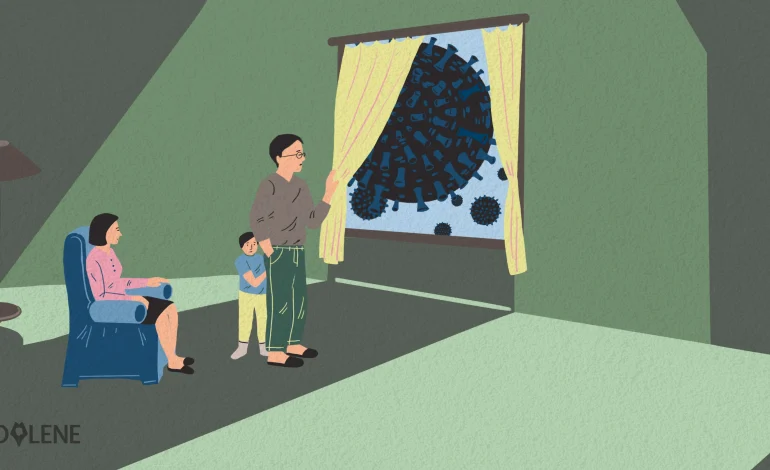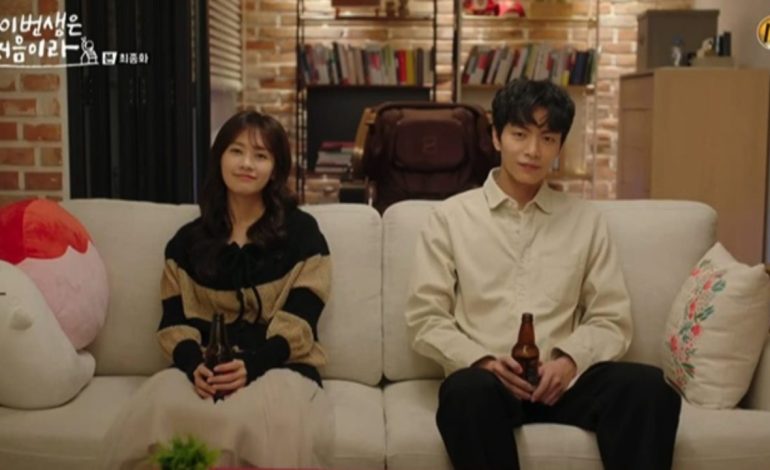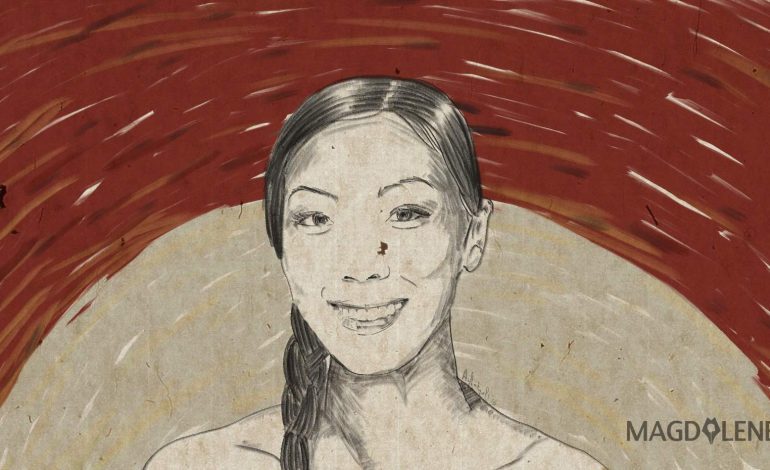Grieving in the Time of Pandemic: Watching My Ailing Mom from Overseas

I am lying in bed with Beatrice, my 3-year-old daughter, who is eating spaghetti bolognese out of a baby food packaging. She puts a blanket on us.
“Mom, you are crying,” she says when she sees my tears on the pillow.
“Yes, honey, I am sad.” She nods, still eating. Teary eyed, I continue: “I am sad because my mom, your grandmother, has been sick with no healing in sight.”
She nods again. Normally, she is the kind of child who jumps around and cannot be still for a second, but she now lies next to me like an old soul offering her ear as I pour my heart out.
She strokes my arm that is hugging her, “Mom, I am stroking you.” An act I have taught her to comfort someone who is upset. We lie there a little more in silence.
My mother has been diagnosed with the incurable high-grade glioblastoma brain tumor in August 2019. I flew to Indonesia from Norway, where I live with my family, with Elizabeth, my second daughter who was only three months old, and also a month later. I had planned to travel again but the pandemic and the lockdowns prevented me to this day to see my mother again.
Interestingly, though, the pandemic comforts me in a weird way. I do not feel alone. I am well aware that many other families are suffering from the exact same circumstance: the pain of not being able to see their (sick) loved ones.
“Mom, now Elizabeth can say a lot of words. Apple. Orange. Bird. Rice. Drink. Emak (grandma),” I tell my mom about her 18-month-old granddaughter on one of our nearly daily video calls.
“Emmmmaakkkk,” Elizabeth says next to me, as if confirming her my claim. My mom smiles a little with her eyes shut. I continue telling her about our daily life, that the new mutated corona virus has come to Norway, and that now we are on another lockdown. I plead her to stay strong and tell her that many people are keeping her in their prayers.
Also read: Marriage Lessons from Being Quarantined with My Parents
Coping with Family Separation During the Pandemic
Some video calls turn highly emotional with tears shared; sometimes I have to hold my tears and keep on smiling as if doing this will deny the fact that a tumour has invaded her brain. My mom keeps her eyes closed during most of these video calls. Her condition has been declining in the past weeks. She seems drowsy most of the time these days, sleeping longer, having difficulties swallowing, in addition to the fact that she cannot speak a word, is wheelchair bound and can only move her left arm.
My mother who used to be the most independent woman I know, who inspired others, who was a spiritual counsellor, a talented dress maker, an extrovert, and an exemplary widow, now cannot even feed herself. The batik dresses and other clothes she made for me now feel more precious and sentimental than ever.
“Look, mom, Beatrice is holding the small baby pillow you made two years ago,” I say, aiming my mobile phone´s camera at my eldest who is holding the cute pillow. With great effort, my mom opens her eyes a little, and closes them again.
The pandemic has stopped many activities, including the opportunities for my mom to be seen by a medical team more frequently, because everything other than COVID-19 cases have been de-prioritized. My inability to visit her leaves me feeling hopeless and makes me question many things.
When my father passed away almost 20 years ago, I thought that when it would be my mother’s time to join him, I would know how to react, because I had been there. The truth is, however, the possibility of losing my only parent for the past 20 years makes it even harder than the first time around. I guess no one ever gets familiar with losing their loved ones.
“Mom, do you feel pain?” No reaction. “Mom, are you fine?” No reaction. “Mom are you sleepy?” No reaction.
“Mom,” I say, “You know that we are all fine and will be fine should you have to go one day, right?”
She opens her eyes and suddenly says, “Yes.” Then she closes her eyes again, her mouth forms a calm smile.
Also read: As People Work From Home, Domestic Workers Find Themselves More Vulnerable
Coping with Grief during Lockdown
My mom has never been afraid of death, especially after losing my father, her biggest love, to cancer. She has taught me and my sisters to talk about the important things in life, no matter how uncomfortable it may feel. Grief. Sadness. Shame. Guilt. Insecurity. Fears. She would be the one pulling the carpet where all of these emotions hide. She believes that we cannot process anything that is hidden. Her principle can be tough at times, but in times like now, it is truly a valuable skillset.
So, I am grieving for I am losing the mother that I know to this tumor, which has changed her personality, behaviours, and everything else. In fact, I have been grieving from the minute I learned about her diagnosis. I do not cry all the time, if that’s what grief entails. But I find myself constantly digesting something that feels heavy, that may appear as anger, disappointment, anxiety, physical complaints, and even strength and concentration.
Everybody copes and grieves in different ways. Sometimes I do not even know that I am grieving. Sometimes I feel so optimistic that my mom´s condition is stable, and I cannot wait for us to come home once the pandemic restrictions are lifted – only to be crushed when I find out she vomits all her food again.
Grieving is a tiring roller-coaster journey. But because acknowledging it is crucial, I allow myself to cry, scream, get angry, and admit disturbing thoughts. I allow myself to remember how she used to sound, and to long to hear her repeated advices that I used to dread. I imagine going home to Indonesia, taking her on vacation, letting her play with my children.
I am trapped in the past and unlikely future. I refuse to stay here and now. I am grieving.
“Sleep well, mom, I will call you again tomorrow.”
Elizabeth waves goodbye. Mom’s eyes are shut, but she smiles and nods. And how I wish to say this again and again, and so many more times.
Illustration by Karina Tungari.






















